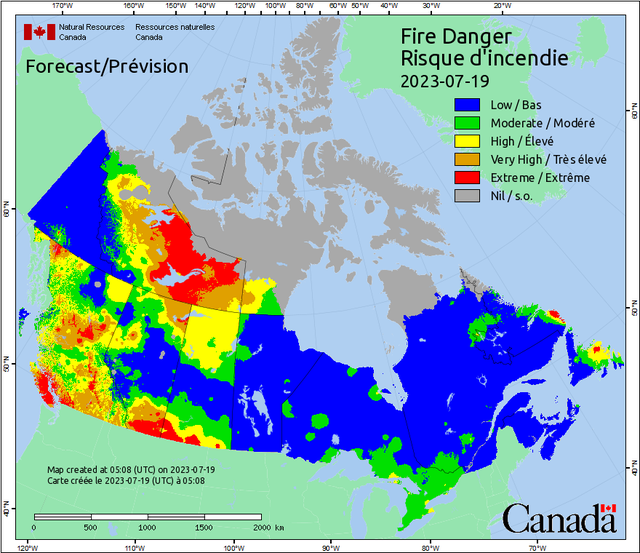Understanding the Canada Wildfires of 2023

Introduction
The 2023 wildfire season in Canada has brought significant challenges to communities and the environment, highlighting the ongoing battle against climate change. With record-breaking temperatures and drought conditions across various provinces, the wildfires have resulted in widespread evacuations, destruction of habitats, and concerns over air quality.
Overview of the Wildfires
As of October 2023, Canada has experienced over 5,000 wildfires that have burned more than 14 million hectares of land, a record high for the country. According to the Canadian Interagency Forest Fire Centre (CIFFC), British Columbia, Alberta, and Quebec are among the most severely impacted provinces. In British Columbia alone, officials reported over 1,300 active wildfires, prompting emergency measures and state of emergency declarations in several regions.
Impact on Communities
Communities throughout affected regions have faced significant disruptions. Thousands have been mandated to evacuate, with temporary shelters set up across several provinces. The health risks posed by smoke inhalation have led health organizations to issue air quality warnings, particularly in urban centers like Vancouver and Calgary. Local wildlife and natural habitats have also been severely impacted, raising concerns about long-term ecological consequences.
Government Response
The Canadian government has mobilized resources to combat the outbreaks, with financial aid provided to communities in distress. Additionally, the Canadian Armed Forces have been deployed to assist local firefighters in battling the blazes. Prime Minister Justin Trudeau stated that the federal government is prepared to support provincial and territorial authorities in any capacity necessary to address this crisis.
Looking Ahead
With climate patterns becoming increasingly unpredictable, experts warn that the frequency and intensity of wildfires may escalate in the coming years. Environmental advocates are calling for more aggressive measures to combat climate change, emphasizing the need for robust forest management programs and investment in firefighting technologies.
Conclusion
The 2023 Canadian wildfires serve as a reminder of the growing threat posed by climate change and its far-reaching effects on communities and ecosystems. The ongoing recovery and rebuilding efforts will be crucial in not only restoring affected areas but also in preparing for future wildfire seasons. Canadians are encouraged to stay informed about fire safety and environmental stewardship to mitigate the impacts of such natural disasters in the future.









